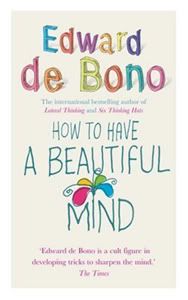Attended the Foundation of Organisation Learning (FOL) class today. Some of the concepts are quite interesting and useful, so I would like to share some of my take-home with everyone. =)
I will summarise the key learning in three points:
1. Learning Disabilities - What are they? Why should they be avoided?
2. Team Learning - What are the areas in which a team can learn?
3. Generative Conversation - How to use the A-I-D tool to have productive conversation.
Learning Disabilities
These are factors which impede individual learning from taking place. Some examples of these disabilities from Peter M. Senge's "The Fifth Discipline" includes:
1. "I am my position" - Refusing to learn from others or accept others ideas as we focus only on our ourselves, our stand, and only we are right.
2. "The enemy is out there" - Blaming others instead of learning the root cause of problem.
3. "Illusion of taking charge" - Acting on reflexes rather than analysis of the situation.
4. "Myth of the management team" - Letting someone else take care of you when learning depends on individuals' efforts.
5. The fixation on events - Being too concerned with events, but do not see the interconnection of things and learnings from the experience.
6. The parable of the boiled frog - Being insensitive to the environment as problems are build incrementally.
7. The delusion of learning from experience - Assuming that precedences are always right or "my boss did that, so it must be correct".
Untested mental models are dangerous. It is necessary to not just rely on them, but to learn and understand the situation. And the key to learning is to understand the complexity of things. If we understand the root causes, it may not be necessary to act on it if things are not within our influence. However, sometimes taking extra steps in doing things will give us opportunities to learn. While templates and precedences are tried and tested ways, it will benefit us if question them, learn what is good, and make it our own.
Team Learning
While we often focus on team learning to improve on performance, there are also other aspects of team learning. The PEL Goals define three types of team learning: Performance, Experience, and Learning.
1. Experience - This is often a strong motivator of work. How do we feel while working? Is there satisfaction, meaning and challenge? It is important to understand and make work enjoyable for the team. While we may not always be able to fulfill them, the importance is in willingness to listen.
2. Learning - This is our growth in knowledge, skills, and capabilities. It is also learning to understand how our customers/vendors think and why they do things in a certain way. It is the learning of their mental models.
With team learning in these two aspects, team dynamics can be sorted out and the outcome will be towards improvement of performance and sustain at the higher level.
Generative Conversation
One of the key to individual learning is to have Generative Conversation or learning how to 'talk properly'. By having productive conversations where parties can work towards solving problems. One of the tool for Generative Conversation is the A-I-D.
A - Advocacy: Focuses on clarifying the speaker's views. It is not focused on winning the argument or being right.
I - Inquiry: Seeks to understand and is driven by curiosity. It is not used to put the other person on the defensive or to make him look stupid.
D - Deep Listening: Put down learning disabilities and interference, and open the receivers.
By switching between these three roles, we will be able to 'talk properly' and make things, that are seemingly impossible, possible. This A-I-D tool strike a chord with me as I recently read a book by Edward de Bono, "How to Have a Beautiful Mind". While beautiful is a very abstract and subjective idea, this book gives concrete ways on how have a mind that's fascinating, creative, exciting. According to Bono, "through applying lateral and parallel thinking skills to our conversations, we will be able to improve our mind. By learning to listen, make our points, and manoeuvre a discussion, we can become creative and more appealing - more beautiful". That, is the essence of Generative Conversation as well.

An interesting book to pick up! Well, thats all for my sharing and a little recommendation today. So will there be anything to share from FOL lesson? Find out tomorrow bah. =)
Comments